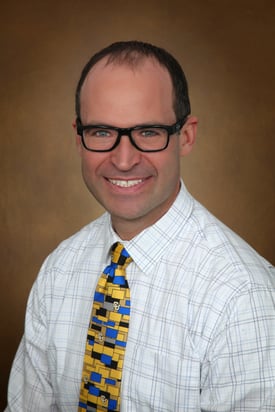In a normal year, vascular surgeons would never postpone surgeries for patients with aortic or carotid disease or other conditions.
But 2020 was anything but normal. When the COVID-19 pandemic forced some elective and semi-elective surgeries to be postponed in the spring, Max Wohlauer, MD, saw an opportunity to conduct research on the effects of delayed operations.
“I know of patients waiting for an operation whose aneurysms have ruptured, and about patients who have lost limbs that were likely salvageable had they not been delayed — I know this is happening because I’ve heard about it,” says Wohlauer, assistant professor of vascular surgery at the University of Colorado School of Medicine and a vascular surgeon at UCHealth. “What we don’t know is what the frequency is, and we don’t know what the risk factors are.”
Through a set of new studies, Wohlauer and other doctors hope to gather data to better counsel patients.
Social origins leading to connections across the world
Max Wohlauer, MD
The research has its origins in a WhatsApp chat Wohlauer started with vascular surgery colleagues across the globe shortly after the pandemic started. The doctors traded notes on conditions in their respective countries, their role in caring for COVID patients, the availability of PPE and more. As the conversations continued, Wohlauer realized the seeds were being sown for a research project that could capture valuable lessons necessitated by the pandemic.
“We’ve got anecdotes, we’ve got great discussions,” he recalls thinking at the time, “but if we could collect data and really analyze this, we could disseminate it to a much larger audience and help a lot of people and a lot of patients.”
So Wohlauer and Robert Cuff, MD, of Michigan State University, in March launched the Vascular Surgery COVID-19 Collaborative (VASCC). By surveying vascular surgeons around the globe, they are gathering data on the impact of COVID-19 on scheduled vascular operations and thrombotic complications of COVID-19.
“We’re also looking at if patients themselves are avoiding the health care system,” Wohlauer says. “We may not have canceled their surgery, but sometimes a patient calls and they say, ‘I just don’t want to be around the hospital right now. I don’t know that it’s safe.’ They’re postponing their own surgeries, and there’s an impact from that.”
By understanding what the barriers are for those patients, Wohlauer says, the surgeons can help overcome them.
“With all this information, we anticipate being able to reach out to patients and say, ‘You’re at an increased risk for these reasons, and this is why, even though we’re in the middle of this surge, you really need to come in and have this operation.’ Or we can say, ‘I think you’ll be OK if we postpone this another month.’ We’ll have data to guide us. We’ll have information that will help the patients and help the hospitals.”
The collaborative also is looking to capture outcomes for patients who had a surgery delayed and then deteriorated and had to have the operation performed as an emergency procedure.
Disseminating the results
So far the group has been involved with four published papers: the impact of the pandemic on vascular surgery trainees; the impact of the pandemic on vascular surgery in the U.S.; the global impact of the pandemic on vascular surgeons; and the experience of Brazilian vascular surgeons during the pandemic. Sherene Shalhub, MD, MPH, associate professor of vascular surgery at the University of Washington, is the lead author on the publications. The latter paper’s first author, Rafael Malgor, MD, is an associate professor of vascular surgery at the CU School of Medicine. Additional authors can be viewed at the individual paper links.
Wohlauer and the collaborative are now working on a paper looking at the longer-term impacts of postponing and canceling surgeries. They hope it can be used to help doctors and patients not only as the COVID-19 pandemic continues, but any time a health crisis or natural disaster forces interruptions in normal medical operations and hospital loads.
“It takes the conversation from, ‘I’ve got this specific patient with this condition’ or ‘I’m postponing one patient with one condition here,’ and someone else is doing something similar for a similar patient in a different place,” Wohlauer says. “We’re trying to understand what happens and what we should do. We’ve got experiences, we’ve got intuition to help guide each other, but at a certain level of complexity, we’re doing the best we can. The data will give us the precision to talk about this in a lot more technical, evidence-based fashion."
Wohlauer would like acknowledge the many talented and outstanding individuals at the University of Colorado, across the United States, and around the world making important contributions to facilitate the research projects. Read the acknowledgements here.
Visit the VASCC website for more details.




.png)
